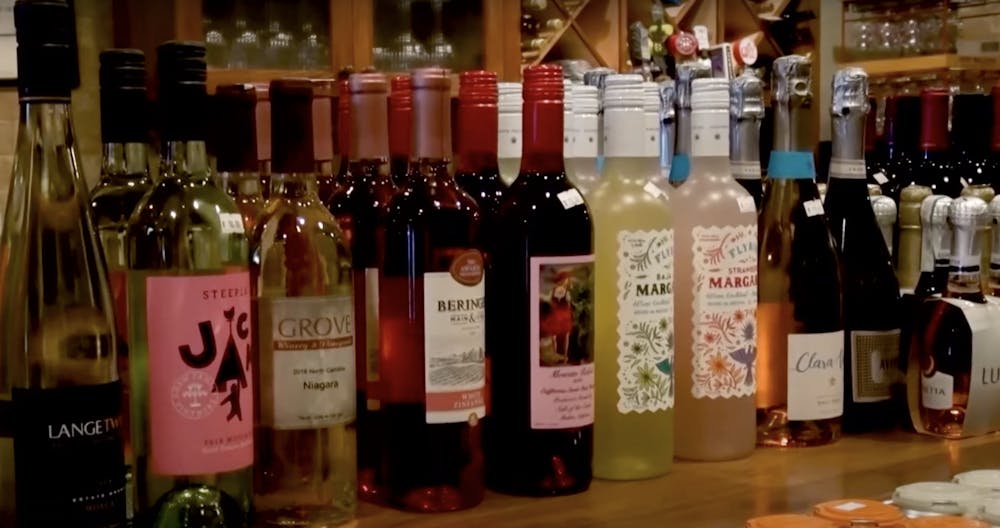Elon University students wanting to grab a drink in Elon are going to have to plan for an earlier night out this fall. Statewide curfews are forcing restaurants in North Carolina to stop selling alcohol after 11 p.m. to help combat the spread of the coronavirus.
“It is frustrating. A lot of our business, especially with students, does involve that late night,” Avery Montgomery, assistant manager at Fat Frogg Bar and Grill, said.
North Carolina Gov. Roy Cooper’s Executive Order No. 153 restricts the sale of alcohol, but this only applies to restaurants. According to the order, a restaurant is defined as a business that prepares and sells both food and drinks.
Both Fat Frogg Bar and Grill and The Oak House are cutting down their hours and asking customers to not linger inside their bar spaces due to alcohol curfew in North Carolina.
Bars - businesses that only sell drinks - are to remain closed under Phase 2 of Cooper’s reopening plan.
Fat Frogg is starting karaoke, live music and trivia nights earlier to accommodate the demand for alcohol earlier in the evening. Montgomery said the restaurant will close at 11 p.m. or earlier depending on how busy the restaurant is.
Fat Frogg has also changed their physical bar space to help combat the spread of the coronavirus. Customers cannot walk up to the bar and order. Montgomery said they are asked to remain at their tables at all times and not wander around the space.
The Oak House is taking similar steps.
“A person can come in and purchase a beverage, take it over to the lounge, sit at a table, take their mask off, and enjoy the beverage at the table. But the bar, per se, for hanging out, having a drink, is not open for that,” Phil Smith, owner of The Oak House, said.
Smith said the bar is also now in a "grab-and-go" format. Alcohol purchased for off-site consumption does not apply to the curfew, but he’s not worried about it since The Oak House plans to close earlier in the night as well.
Smith said he’s more worried about too many people trying to come into the building and not being able to stay physically distant.
“We’ll just have to limit how many people can come in and thank people for wanting to be there,” Smith said. “Maybe try to get people to not linger. Maybe enjoy a beverage and enjoy someone else’s company and then move on so that other people can enjoy the space.”
Both Montgomery and Smith said they realize both the curfew and COVID-19 pandemic will present a new set of challenges this fall. But even if business takes a hit, they’re more focused on spending time with students in the safest way they can.
“I don’t know how long you’ll be here,” Montgomery said. “I’d like to say you’ll stay the whole semester, but Chapel Hill is proving that to be an interesting case right now.”
Smith said he hopes students will try to do the best they can to stay safe and follow the rules so that establishments get both more business and time with students.
“Just make good decisions so that it keeps us safe, keeps your friends and your faculty safe, and just everybody here safe so that we can continue and have a semester,” Smith said. “I mean my hope for us is that we have a semester.”


